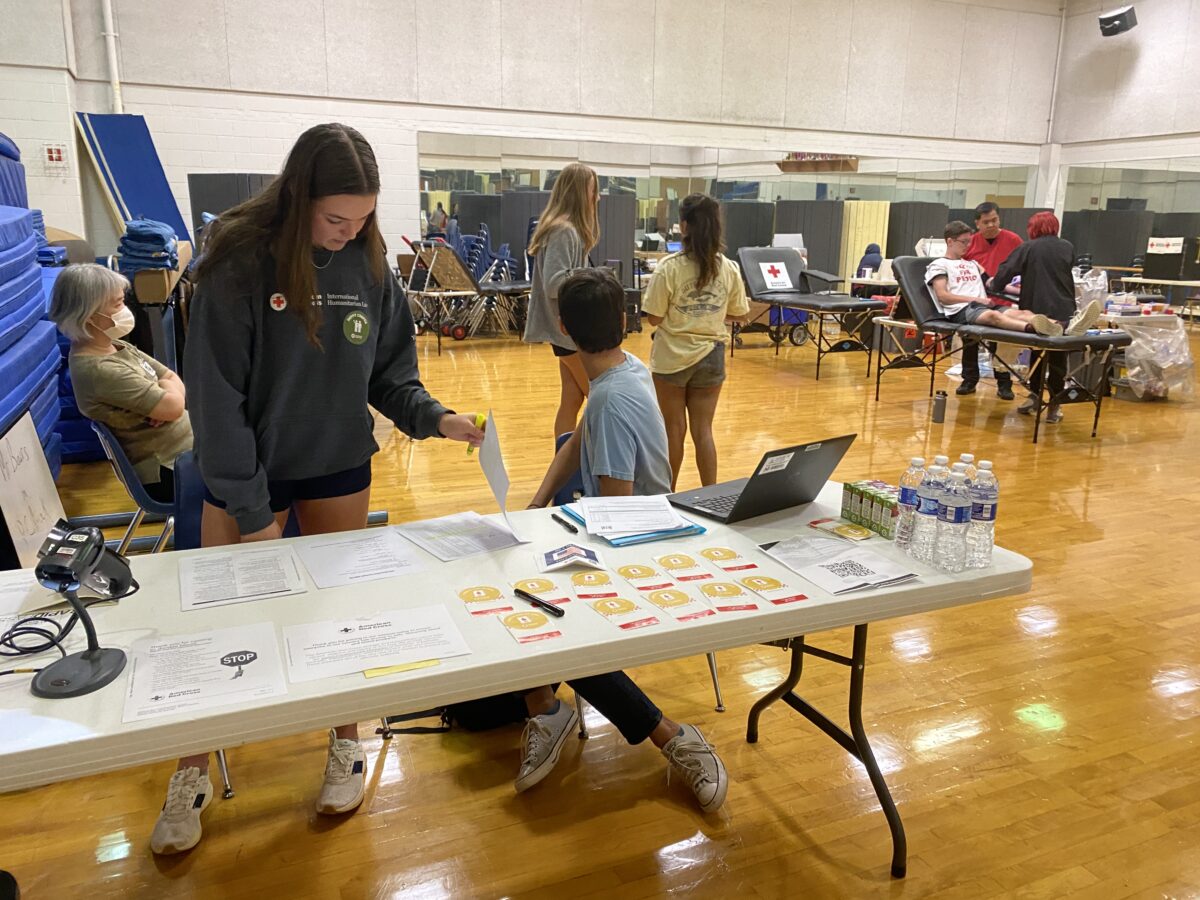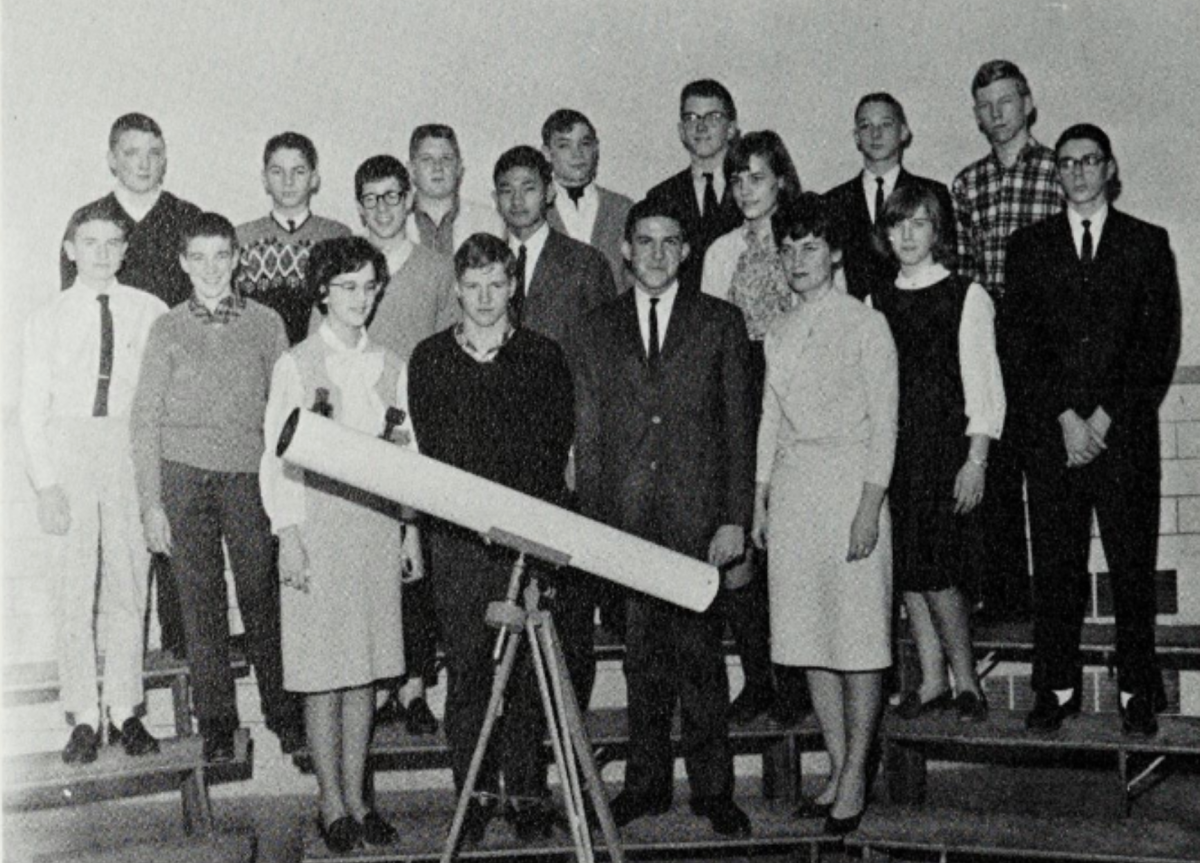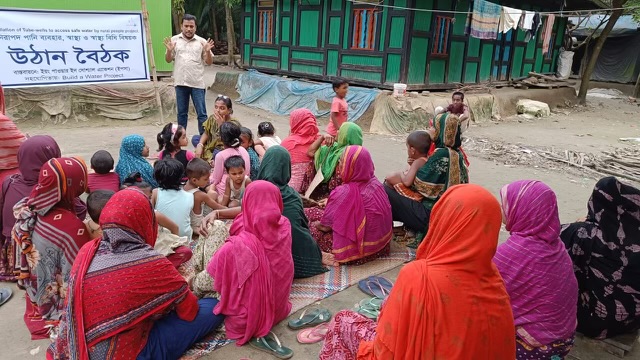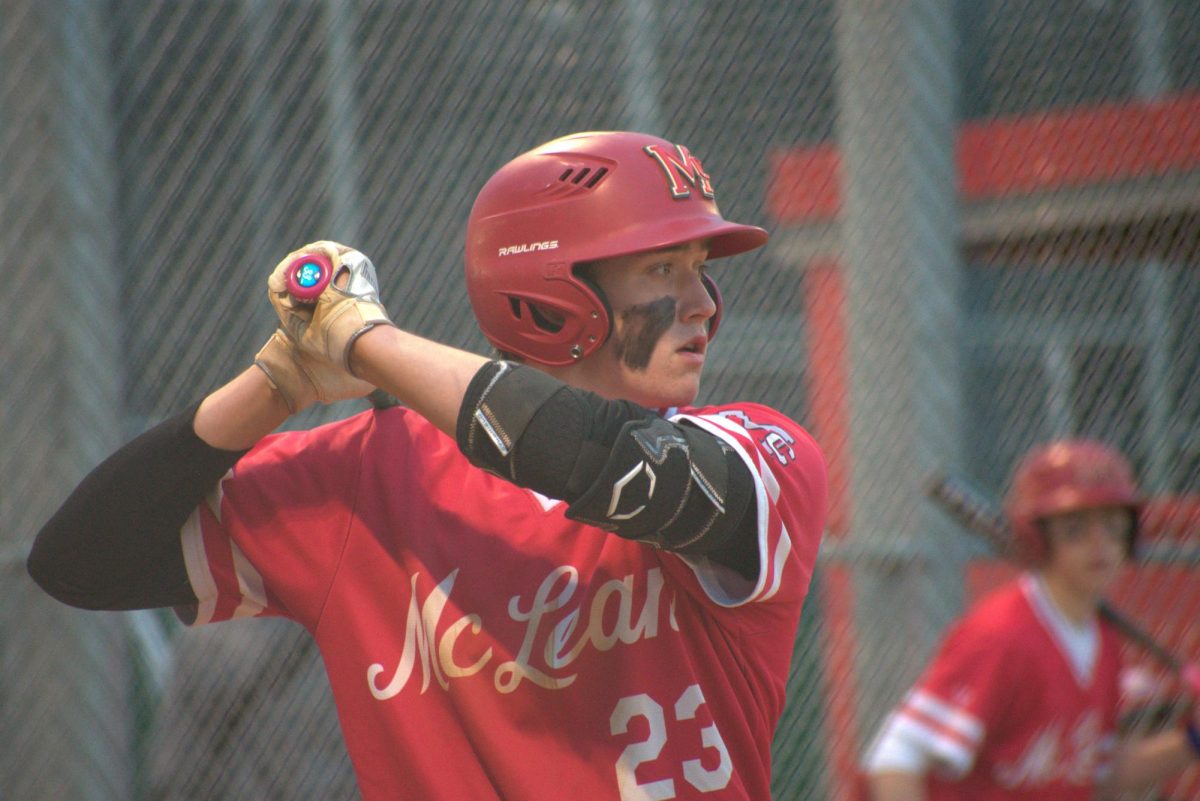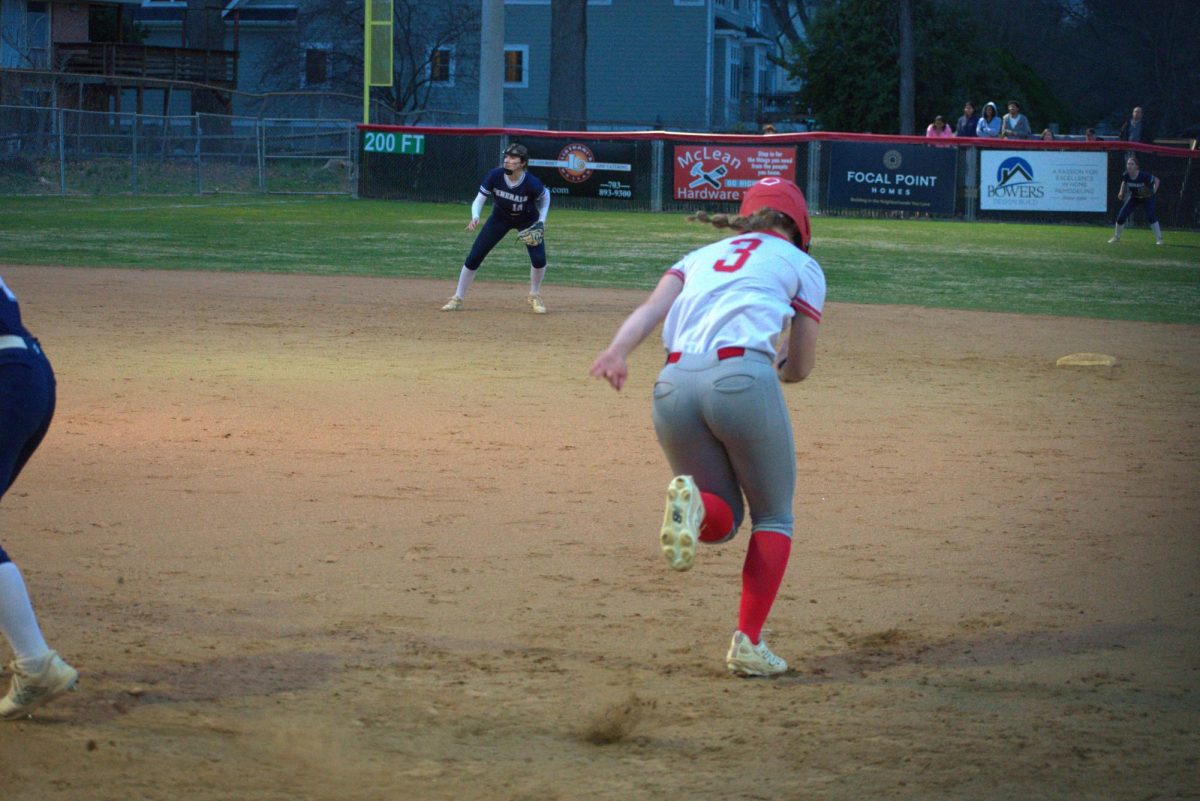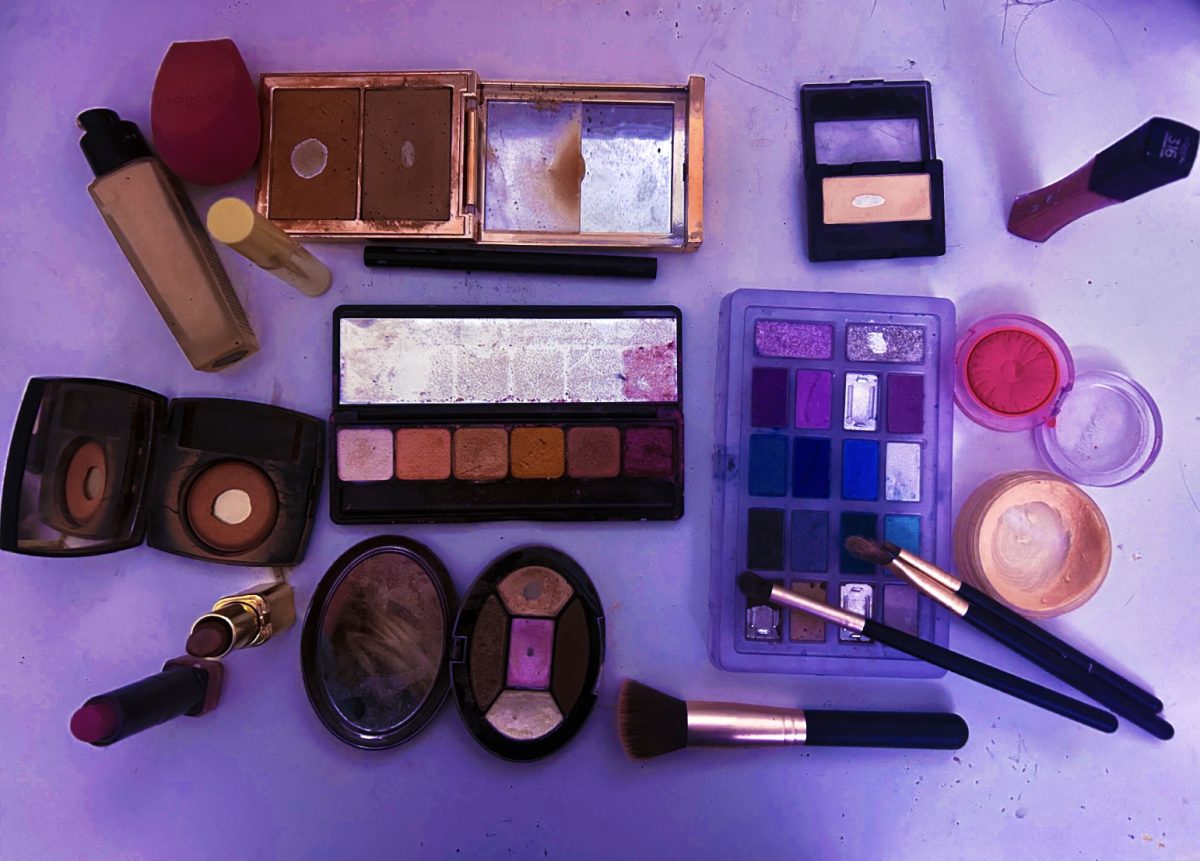The Red Cross Club hosted a blood drive on Friday, September 15, where student donors had the opportunity to donate blood in the dance room with the accompaniment of trained staff.
“Though we held a blood drive last year, most of it was managed by INOVA,” said senior Sarah Tabor, president of the Red Cross Club. “This is the first blood drive [in my time at McLean] completely organized by the Red Cross.”
Students checked in using RapidPass, an online questionnaire that helped save time by having donors respond to personal health questions before their appointment. Additionally, minimum age donors of sixteen years were required to have a parental consent form printed out with them the day of their donation.
Provided with a free T-shirt, juices and snacks after completion of all necessary paperwork, student safety was prioritized throughout the entire process. Further, many donors felt the significance of their efforts to minimize the effects of the blood shortage during their appointment.
“I thought there was no reason not to donate,” senior Andrew Von Elm said. “But after finding out that there was a national blood shortage, I feel like I really made a difference.”
The blood shortage, announced by the American Red Cross on Monday, is a result of numerous climate disasters paired with a decrease in blood donors across the nation. The shortage threatens adequate medical care for patients who require additional blood in emergencies or necessary transfusions for illnesses such as cancer.
“I think that as students who are part of the healthier, younger part of society, it’s important for us to try to help in any way that we can,” said senior Hugo Javierre Carmona, vice president of the Red Cross Club. “At any day, we could be the ones in need of blood, making it increasingly crucial that the national supply remain stable. Blood donation supports entire communities.”
With the event being fully booked the day before, the club hopes to hold another blood drive in the spring.
“I think it’s really special that students take it upon themselves to donate blood,” Tabor said. “It’s an important habit they can involve in their adult life.”


